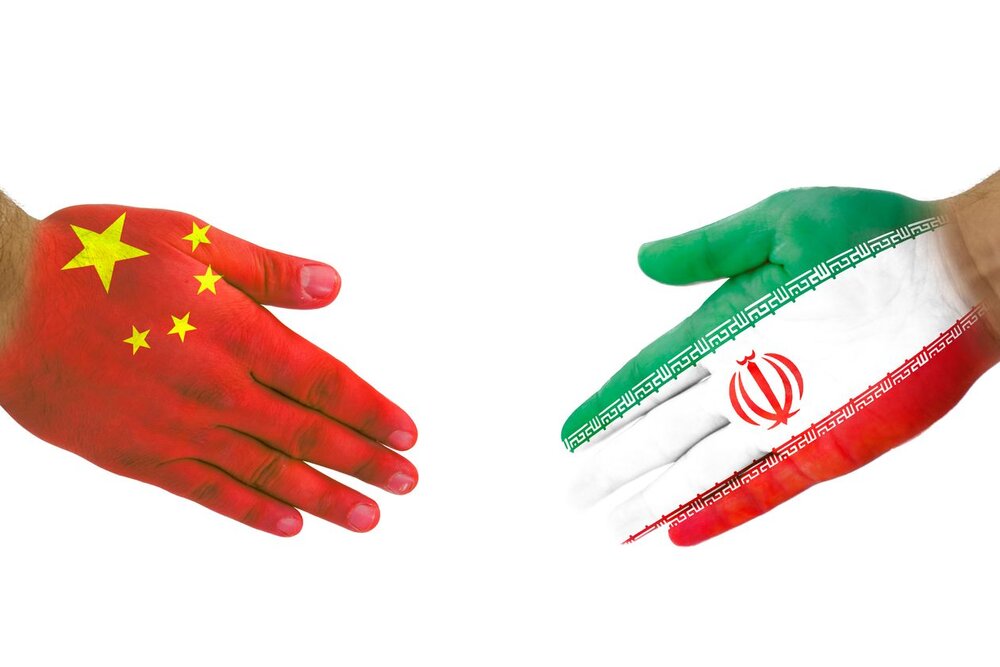Iran-China deal shows Washington’s ‘massive failure’: Chicago Tribune

TEHRAN — A U.S. newspaper has underlined the importance of the 25-year strategic partnership deal between Iran and China, saying the deal is a “massive failure” of the U.S. maximum pressure policy against Tehran.
“U.S. President Donald Trump’s administration pursued a policy of economic sanctions in an attempt to bring Iran to the negotiating table, but such approach pushed Tehran towards signing an accord with Beijing rather than Washington,” The Chicago Tribune wrote.
“The new China-Iran partnership represents a massive failure of the administration’s Iran policy,” it said.
The daily noted that the yet-to-be-finalized accord would establish “a far-reaching economic and security partnership” between Iran and China.
“The expanding partnership represents a double blow (to the United States). It gives Tehran an out from the maximum pressure campaign that was supposed to force Iran back to the table and end its nuclear program entirely, if not end the regime itself. And it gives China a crucial geopolitical win in the rapidly accelerating strategic competition with Washington,” The Chicago Tribune says. The Sino-Iranian Comprehensive Strategic Partnership was announced in a joint statement during a visit to Tehran by Chinese President Xi Jinping in 2016.
The cooperation roadmap consists of 20 articles, covering Tehran-Beijing ties in “Political,” “Executive Cooperation,” “Human and Cultural,” “Judiciary, Security and Defense,” and “Regional and International” domains, according to the statement released back then.
Recently, Iran’s Foreign Ministry spokesman Abbas Mousavi described the agreement as “principled” guideline under which, China will emerge as the world’s leading economic power in the near future, while Iran will turn into the great power in the West Asia region.
“But for the U.S., the expanding partnership represents a double blow. It gives Tehran an out from the maximum pressure campaign that was supposed to force Iran back to the table and end its nuclear program entirely, if not end the regime itself. And it gives China a crucial geopolitical win in the rapidly accelerating strategic competition with Washington,” The Chicago Tribune said.
It further stressed that the U.S. has failed to make its European allies withdraw from the 2015 nuclear deal, officially known as the Joint Comprehensive Plan of Action (JCPOA), and slap sanctions on Iran.
“The decision to go it alone, however, reduced the chances that the new U.S. policy would succeed. While Washington withdrew from the deal, all of the others remained within it. None followed it in imposing sanctions, thus limiting the impact of the U.S. effort to isolate Tehran,” it said.
Far from joining in, the Europeans and other parties sought to undermine the new U.S. efforts, the paper said.
"The Europeans set up a barter exchange to enable their companies to escape retaliatory U.S. sanctions for continuing to trade with and invest in Iran. Russia increased its military and strategic engagement with Iran. And China set out to forge an entirely new partnership with Tehran to Washington's detriment, it added.
The New York Times reported last week that the deal would see Iran supply China with oil for 25 years. In return, China would invest in Iran’s ports as well as banking and telecommunications sectors amounting to some $400 billion over the next quarter century.
Beyond economic engagement, the China-Iran partnership would extend to military and strategic areas, including joint training and exercises, joint weapons research and intelligence sharing.
According to The Chicago Tribune, for Iran, the economic investments, secure oil outlets and a growing military partnership offer an escape from the pressure exerted by the U.S. and its Persian Gulf allies.
For China, the partnership would give a role in a critical strategic region that has long been dominated by the U.S. The new ports and rail lines will also extend its Belt and Road infrastructure project deeper into West Asia, the paper added.
MH/PA

Leave a Comment